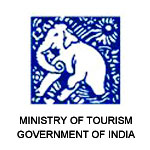
Uttar Pradesh (UP) tops with highest share of about 15 per cent in the projects being carried out under public-private partnership (PPP) mode across India followed by Maharasthra (12 per cent), Gujarat (10 per cent), Karnataka (nine per cent) and Tamil Nadu (six per cent) amid top five states in this regard, noted a recent ASSOCHAM-SREI joint study.
“UP again has highest share of about 22 per cent in terms of value in the total PPP investment projects under construction across India followed by Maharashtra (11 per cent), Haryana (8.5 per cent), Gujarat (six per cent) and Madhya Pradesh (4.5 per cent), highlighted the study titled ‘PPP Investment in Indian Infrastructure: Need for growth and development,’ conducted by The Associated Chambers of Commerce and Industry of India (ASSOCHAM) with infrastructure conglomerate SREI.
Gujarat has the highest share of 15.5 per cent in infrastructure projects (value terms) that are under operation based on the PPP mode and is followed by UP and Maharashtra (13 per cent share each), Tamil Nadu and Karnataka (almost 8 per cent each).
“A total of about 1,200 projects in different segments of infrastructure sector with investments worth about Rs seven lakh crore are being carried out under PPP mode throughout India,” said Mr D.S. Rawat, secretary general of ASSOCHAM while releasing the findings of the chamber’s study.
Of these, about 650 projects worth over Rs 4.5 lakh crore with about 67 per cent share are there in roads and bridges followed by over 100 projects in ports sector (12 per cent share) with an investment worth over Rs 80,700 crore, energy (six per cent) with over 150 projects with investments worth over Rs 41,000 crore, SEZ (five per cent share) with investments worth over Rs 30,000 crore, water sanitation (2.6 per cent) and others.
About 500 PPP projects with investments worth over Rs 1.6 lakh crore under operation, there is no information about 150 PPP projects with investments worth over Rs one lakh crore and 65 such projects with investments worth over Rs 77,000 crore have been terminated, noted the ASSOCHAM-SREI study.
Almost 73 per cent of the total investments worth over Rs 3.3 lakh crore attracted by infrastructure sector in various segments that are under construction in the PPP mode are concentrated in roads and bridges.
Currently there are about 480 investment projects under construction in the PPP mode in various other segments – SEZ, ports, energy, water sanitation, airports, tourism, healthcare, cold chain and others.
Interestingly, most PPP investment projects have been terminated in Maharashtra (13 per cent) followed by Chhattisgarh (10 per cent), Gujarat (nine per cent), Kerala (seven per cent) and MP (seven per cent).
“Poor preparations, flawed risk-sharing, inappropriate business models and fiscal uncertainties to vested interests leading to development of skewed qualification criteria are certain key reasons for failure of PPP projects in India,” said Mr Rawat.
The ASSOCHAM-SREI study noted that stable macroeconomic framework; sound regulatory structure and effective regulation; sustainable project revenues; investor friendly policies, transparency & consistency; liberalisation of labour laws and good corporate governance are certain basic requirements to achieve success of PPP sector in India.
An appropriate institutional framework is a pre-requisite for success of PPP in the infrastructure development due to its size, investment requirements, structure and dimension, it said.
The study has also suggested the government to set up an independent institution for overall co-ordination and management of PPP projects in the country.
“It should also act as nodal agency with the responsibility of creation of PPP data base, creation and regular updation of model bid documents for all infrastructure sectors; co-ordination with concerned government departments and dissemination of best practices and learning through both successes and failures,” added the ASSOCHAM-SREI joint study.







Leave a Reply
You must be logged in to post a comment.